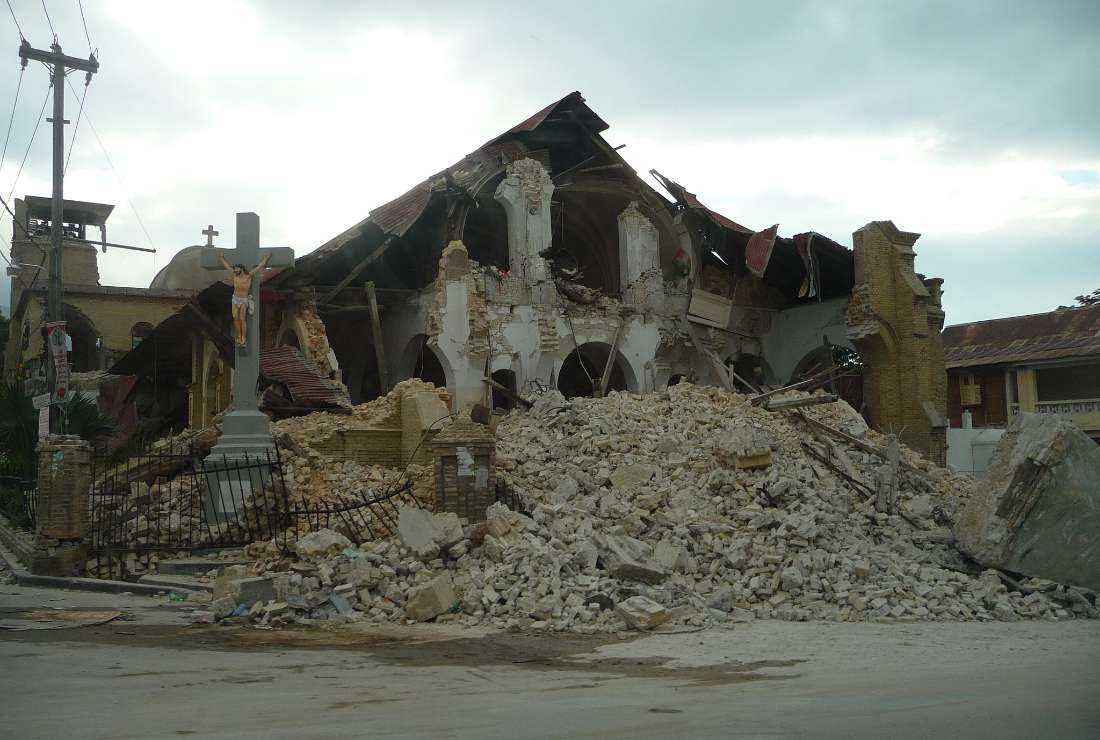
An undated photo of a church located in Port au Prince, Haiti is seen destroyed after an earthquake. (Photo: La Civiltà Cattolica / flicker.com)
To talk about Haiti today is to talk about a country with problems dragging it down, in circumstances that make life difficult compared with other countries. What characterizes its present must be seen in the context of its past.
Haiti was proclaimed the world’s first black republic on January 1, 1804, at the end of a war of independence, with the victory of former slaves over French troops. As a new country it assumed the name “Ayiti,” originally meaning “Land of the High Mountains,” a land inhabited by the Taïnos or Arawak, a semi-settled people.
The great earthquake of 2010, with an estimated magnitude between 7.0 and 7.2 on the Richter scale, was a tragic event that marks the recent sad history of Haiti.
The epicenter was located some 20 kilometers from the nation’s capital, Port-au-Prince. The damage was enormous: 400,000 buildings destroyed or damaged, including the National Palace, the official residence of the president, Notre-Dame Cathedral and the Parliament building.
But it is mainly the human damage that is devastating: more than 280,000 dead, 300,000 injured and 1.3 million homeless.
On August 14, 2021, a further 7.2-magnitude earthquake shook Haiti. Its epicenter was 12 kilometers from the city of Saint-Louis-du-Sud, 160 kilometers from the capital, and killed at least 29 people.
Haiti is thus a country accustomed to natural and human misfortunes. One further example is the terrible earthquake of 8.1 on the Richter scale on May 7, 1842, followed by a tsunami.
This earthquake and tsunami destroyed Cap-Haïtien and all the towns on the country’s Atlantic coast in less than six minutes, claiming more than 5,000 lives in the town of Cap, which had an estimated population of 10,000 at the time.
Read the complete article here.
This article is brought to you by UCA News in association with "La Civiltà Cattolica."


